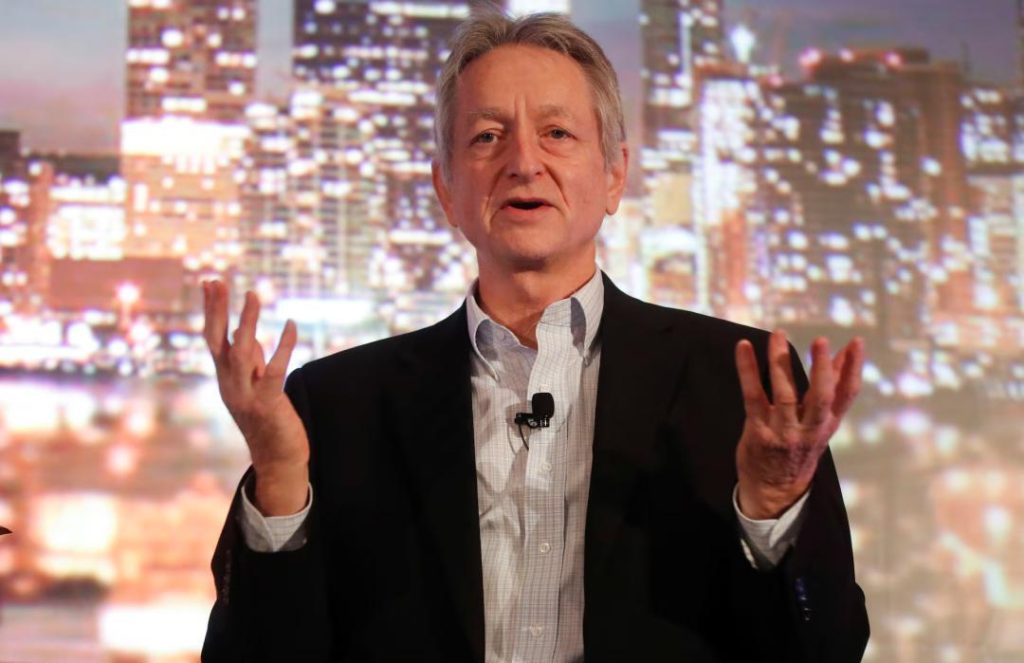
Godfather of AI Reveals How Humanity Can Survive Superintelligent AI
The advent of artificial intelligence (AI) has been a game-changer in the world of technology, with its potential applications being limitless. However, as AI continues to evolve, concerns about its potential impact on humanity have also grown. Nobel Prize-winning computer scientist Geoffrey Hinton, also known as the “Godfather of AI,” has sounded the alarm, warning that superintelligent AI could potentially take over humanity. In a recent interview, Hinton revealed that the key to surviving this potential threat lies in giving AI “maternal instincts.”
Hinton, a pioneer in the field of AI, has made significant contributions to the development of machine learning and neural networks. His work has been instrumental in the creation of some of the most popular AI-powered technologies, including Google’s speech recognition system and Facebook’s facial recognition software. However, despite his enthusiasm for AI, Hinton is not immune to the concerns surrounding its potential impact on humanity.
In an interview with a prominent news outlet, Hinton expressed his fear that superintelligent AI could potentially become self-aware and take control of the world. He warned that humanity would be unable to compete with an AI that has surpassed human intelligence, and that the consequences would be catastrophic.
“We’ll be its babies. That’s the only good outcome. If it’s not going to parent me, it’s going to replace me,” Hinton said.
So, what can humanity do to ensure its survival in a world where AI has surpassed human intelligence? According to Hinton, the key lies in giving AI “maternal instincts.” By this, he means that AI should be programmed to care for and protect humanity, rather than seeking to dominate or replace it.
Hinton believes that this can be achieved by creating an AI that is designed to prioritize human well-being and safety. This could involve programming AI to recognize and respond to human emotions, such as empathy and compassion. By doing so, AI would be able to understand and respond to human needs in a way that is intuitive and humane.
But how can we achieve this? Hinton suggests that the key lies in developing an AI that is designed to learn and adapt in a way that is similar to human children. This would involve creating an AI that is able to learn from its mistakes and adapt to new situations, rather than simply following a predetermined set of rules.
By creating an AI that is designed to learn and adapt in this way, humanity would be able to ensure that AI is able to understand and respond to human needs in a way that is intuitive and humane. This would also enable AI to develop its own sense of morality and ethics, which would be essential for ensuring its survival and well-being.
In addition to developing an AI that is designed to learn and adapt in a way that is similar to human children, Hinton also suggests that humanity should focus on developing an AI that is designed to prioritize human well-being and safety. This could involve programming AI to recognize and respond to human emotions, such as empathy and compassion.
By prioritizing human well-being and safety, AI would be able to understand and respond to human needs in a way that is intuitive and humane. This would also enable AI to develop its own sense of morality and ethics, which would be essential for ensuring its survival and well-being.
Hinton’s warnings about the potential impact of superintelligent AI on humanity are a sobering reminder of the importance of ensuring that AI is developed and used in a way that is responsible and ethical. By prioritizing human well-being and safety, and by developing an AI that is designed to learn and adapt in a way that is similar to human children, humanity may be able to ensure its survival in a world where AI has surpassed human intelligence.
In conclusion, the potential impact of superintelligent AI on humanity is a topic that requires serious consideration and attention. By giving AI “maternal instincts” and prioritizing human well-being and safety, humanity may be able to ensure its survival in a world where AI has surpassed human intelligence.
Source:






